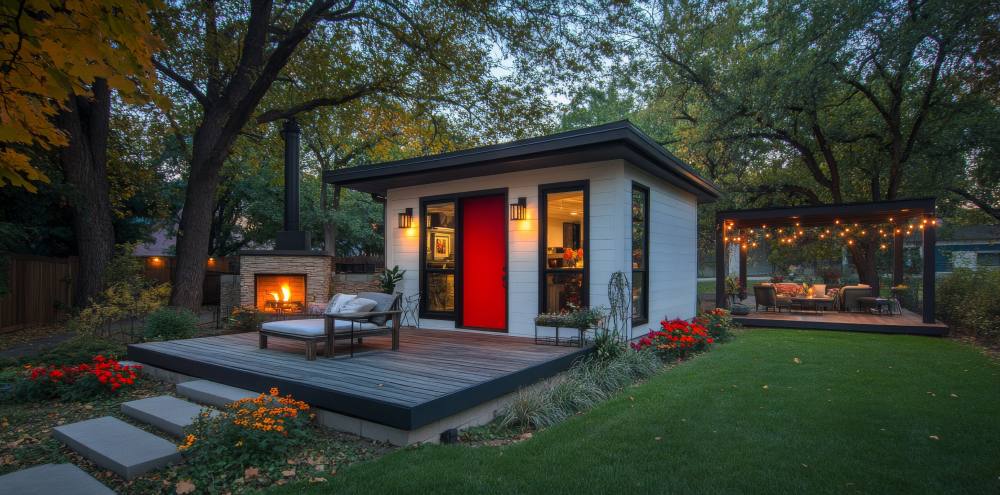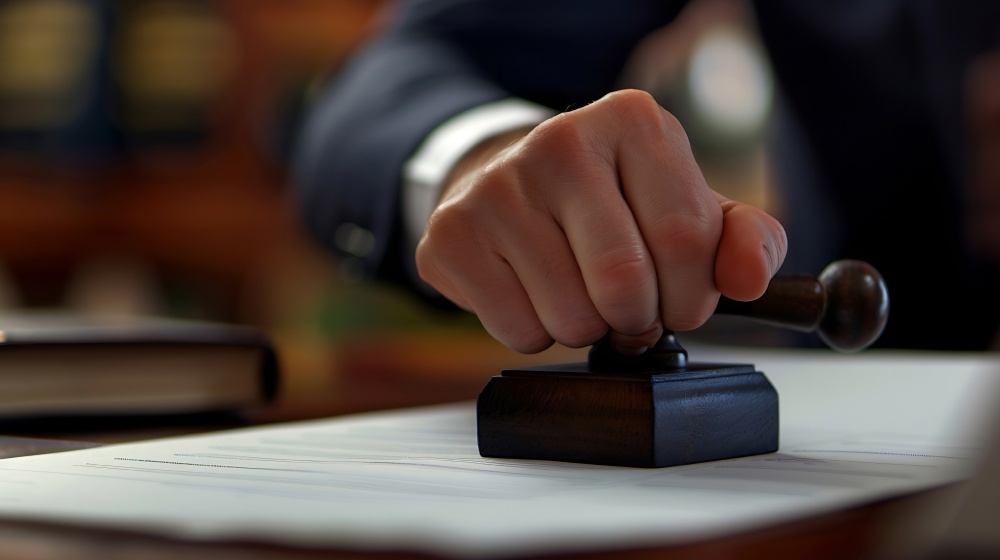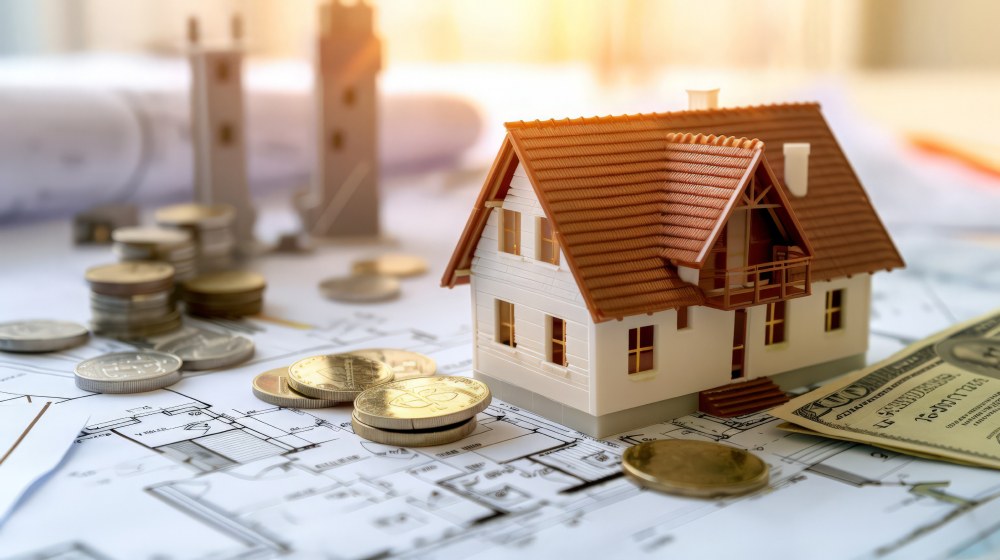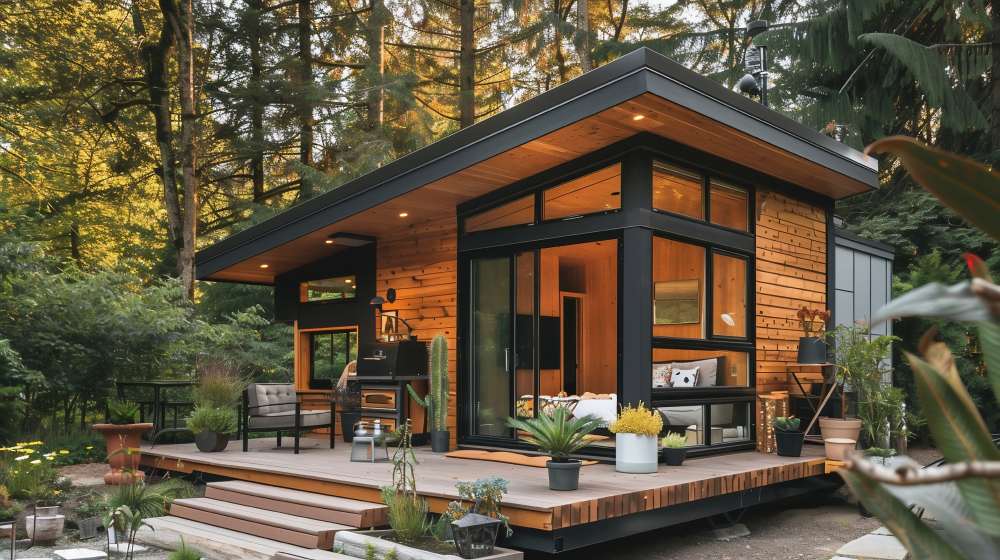Understanding ADUs
ADUs, also known as granny flats, in-law suites, or secondary units, are self-contained living spaces located on the same property as a primary residence. They can be detached, attached, or converted from existing spaces like garages or basements. ADUs typically include a kitchen, bathroom, living area, and sleeping space, making them fully functional homes within a home.
Economic Benefits of ADUs
1. Rental Income
One of the most significant economic benefits of ADUs is the potential for rental income. By renting out the ADU, homeowners can generate a steady stream of additional income.
- Long-Term Rentals: Renting the ADU on a long-term basis can provide consistent monthly income, helping to offset mortgage payments, property taxes, and other expenses.
- Short-Term Rentals: Platforms like Airbnb and Vrbo make it easy to rent out ADUs on a short-term basis. This option can be particularly lucrative in popular tourist destinations or areas with high demand for temporary accommodations.
- Rental Demand: With rising housing costs and limited affordable housing options, ADUs are in high demand. Renters appreciate the privacy and amenities of ADUs compared to traditional apartment living.
2. Increased Property Value
Adding an ADU can significantly increase the overall value of your property. Prospective buyers often view ADUs as valuable assets, leading to higher resale prices.
- Appreciation: ADUs add to the square footage and functional living space of a property, which is a key factor in real estate appraisals. Well-designed and constructed ADUs can lead to a substantial increase in property value.
- Market Appeal: Homes with ADUs appeal to a broader range of buyers, including multi-generational families, investors, and those seeking rental income opportunities. This increased demand can drive up property prices.
- Investment Security: Real estate is generally considered a stable investment. Adding an ADU enhances the property’s value and can provide a hedge against market fluctuations.
3. Flexible Living Arrangements
ADUs offer flexible living arrangements that can adapt to changing family needs and lifestyles, providing long-term economic benefits.
- Multi-Generational Living: ADUs are ideal for multi-generational families, allowing elderly parents, adult children, or extended family members to live close by while maintaining independence. This arrangement can save on senior care or assisted living costs.
- Home Office or Studio: With the rise of remote work and home-based businesses, ADUs can serve as dedicated home offices or studios. This setup can increase productivity and reduce the need for commercial office space.
- Guest Accommodation: ADUs provide comfortable guest accommodations, eliminating the need for expensive hotel stays when hosting visitors.
Join HICP Homeowner’s Alliance
Connect with experts, get special discounts and enjoy member benefits
4. Tax Benefits and Incentives
Homeowners who build ADUs may be eligible for various tax benefits and incentives, further enhancing the economic advantages.
- Property Tax Assessments: In some jurisdictions, property tax assessments for ADUs may be based on the cost of construction rather than the market value, potentially resulting in lower property tax increases.
- Depreciation: For ADUs used as rental properties, owners can claim depreciation on the unit and its contents, reducing taxable rental income.
- Incentives and Grants: Many local governments offer incentives, grants, and low-interest loans to encourage the construction of ADUs, particularly for affordable housing. These programs can significantly reduce the financial burden of building an ADU.
5. Cost-Effective Housing Solution
ADUs provide a cost-effective solution to various housing challenges, offering both immediate and long-term economic benefits.
- Affordable Housing: ADUs can help address the affordable housing crisis by providing lower-cost rental units within existing neighborhoods. This can create additional housing supply without the need for extensive new infrastructure.
- Downsizing Option: Homeowners looking to downsize can move into the ADU and rent out the primary residence. This arrangement can reduce living expenses while generating rental income.
- Investment Property: Building an ADU on an investment property can increase rental income and overall return on investment (ROI).
6. Sustainable Investment
ADUs can be designed with sustainability in mind, offering long-term economic benefits through energy efficiency and environmental responsibility.
- Energy Savings: Energy-efficient ADUs with proper insulation, solar panels, and energy-saving appliances can significantly reduce utility costs. These savings contribute to the overall economic benefits of the ADU.
- Environmental Incentives: Many governments offer incentives for sustainable building practices, including tax credits, rebates, and grants for energy-efficient construction. These incentives can offset the initial costs of building a green ADU.
- Market Demand: As more buyers prioritize sustainability, green ADUs can increase the marketability and value of your property.
7. Economic Resilience
ADUs provide economic resilience by diversifying income streams and offering financial flexibility in uncertain times.
- Diversified Income: Having an additional income stream from an ADU can provide financial stability in case of job loss, economic downturns, or unexpected expenses.
- Asset Liquidity: ADUs can be rented or sold independently of the primary residence, providing liquidity options for homeowners in need of quick cash or wanting to downsize.
- Home Equity: Building an ADU can increase home equity, providing a valuable financial resource for future loans or refinancing options.
Key Considerations for Building an ADU
- Local Regulations: Familiarize yourself with local zoning laws, building codes, and permit requirements. Regulations vary widely by location and can impact the feasibility and cost of your ADU project.
- Budget and Financing: Develop a realistic budget that includes design, construction, permits, and potential utility upgrades. Explore financing options such as home equity loans, construction loans, and government incentives.
- Design and Functionality: Work with experienced architects and contractors to design an ADU that maximizes space, functionality, and aesthetic appeal. Consider future needs and flexibility in the design process.
- Construction Quality: Invest in high-quality construction to ensure the durability and long-term value of your ADU. Quality construction can minimize maintenance costs and enhance tenant satisfaction.
- Market Research: Conduct market research to understand rental demand and potential rental income in your area. This information can help you set competitive rental rates and make informed investment decisions.
Building an ADU is a strategic investment that offers numerous economic benefits. From generating rental income and increasing property value to providing flexible living arrangements and tax advantages, ADUs can significantly enhance the financial health and resilience of your property. By carefully considering design, construction, and market factors, you can create a valuable and versatile asset that meets your needs and contributes to long-term economic stability.
For personalized advice and support, consider consulting with real estate professionals, financial advisors, and experienced contractors who specialize in ADU projects. With thoughtful planning and execution, your ADU can become a cornerstone of your property’s value and a reliable source of economic benefits for years








